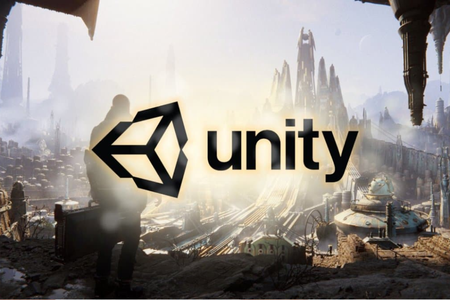There are lots of ways to make computer games.
In the old days, people hand-forged instructions on punch cards, fed them into a reader, and in that way input a program that allowed you to play Tic-Tac-Toe.
Assemblers were common in the 8-bit era, as were grotesquely inefficient interpreted languages like BASIC. C arrived on the scene and became the great default, along with its successor language C++. Nowadays C# sees a lot of popularity, seeing as how it’s used by Unity, but there’s also Javascript, Java, Ruby, Lua, Python, Inform and other things.
One of the more neglected ways to put a game together, these days, is what we might call the construction set package. In the 8-bit era these were more common (and where I got the name from), with popular releases like Pinball Construction Set, Adventure Construction Set, Racing Destruction Set, and Shoot-em-up Construction Kit.
Later there were the Bard’s Tale Construction Set and SSI’s D&D-based Unlimited Adventures, which still has a following to this day. But while less visible now, perhaps, construction sets are still with us, particularly in the form of the RPG Maker series.
(I can’t leave UA without a cursory exploration of that rabbit hole: Here’s an Unlimited Adventures file archive, a collection of adventures based on classic D&D modules, the open source Dungeon Craft UA-workalike adventure editor, and for completeness my own Metafilter post about it. There! Now I can move on.)
The popular appeal to a construction set is that age-old pipe dream of computerdom: enabling people to make something interactive without coding. Programmers often have little idea how appealing this is to the common user. They fail to see what most other people think: learning to code is difficult, time-consuming, obscure and full of traps.
Programming languages can seem designed to gatekeep people unwilling to memorize cryptic commands and syntax. Error messages usually point to the precise space that compilation failed, and only report how it failed, which is frequently unhelpful in determining where the true error lies. Once you’ve learned one language, you find out you really want to use a library only available elsewhere.
In short, learning to code sucks, so the promise of software that allows someone to get by without having to bother with it is great. It’s fueled the rise of things like YoYoGames’ GameMaker Studio product, even though what it provides is actually indistinguishable from coding, just with a drag-and-drop interface. More recent versions even let you drop the DnD stuff altogether and just write text scripts like glob intended. (Lest it seem like I am dumping on GM, I’ve used it for four projects to date, and I can tell you from direct experience that you can make really cool things with it.)
Anyway, GM is not a construction set in the sense that I mean, but more of an integrated IDE. RPG Maker is closer to the ideal of a purpose-built editor geared to produce one particular kind of game, in its case JRPGs in the mold of the 16-bit classics. And even if you aren’t as afeared of coding as some, it can be useful, even to professional game designers, to have a quick way to make an RPG-styled thing in their game design toolbox.
"If you have the hot coal of an awesome idea burning a hole in your cerebellum, it can help to make a toy version of it as quickly as possible...and RPG Maker, in its area, has the advantage of rapid iteration."
For it takes time to make a game, and to make a crazy idea with unusual mechanics takes even longer. If you have the hot coal of an awesome idea burning a hole in your cerebellum, it can help to make a toy version of it as quickly as possible. Often these ideas don’t pan out; the sooner you can test it, and the less energy you expend towards it, the sooner you can find out if there’s actually a diamond in the middle of that coal, or if it’s all ash after all. And RPG Maker, in its area, has the advantage of rapid iteration. Once you’re familiar with its capabilities and know what you can do with it, it’s usually not that hard to make a working model.
For other users, who are coding averse…RPG Maker will not save you from coding entirely. Its events feature is basically scripting by another name. But at least it presents your options in the form of lists, reducing the amount of memorization you have to do. And, although it’s kind of a looked-down-upon genre, people have sold and do sell their RPG Maker productions on Steam.
Because it’s fairly easy to use, this means there’s many products there that seem to be cash grabs, and for a new project, being visible above them and not being dismissed as another poor quality game may be difficult. But some people have managed to do surprising things with it. Maybe you can do something new of your own? Maybe I can help you to do so.
Putting in screws when you only have a hammer
RPG Maker’s been around for quite some time. Wikipedia tells us it dates all the way back to 1992, with RPG TsukÅ«ru Dante 98, for the Japanese PC-9801 microcomputer. PC Gamer published a nice article (by Glada Zavarise) about its rise, how it spread around the Western gaming world through piracy and a series of unofficial fan translations, and how now you can easily buy versions dating back to 2000 through Steam. It also notes that, despite some standout RPG Maker productions like To the Moon, Space Funeral and OFF, the common consensus is that most RPG Maker projects are lazy resource dumps out there just to take your money.

Freebird Games' award-winning To the Moon is a notable example of a game made with RPG Maker
I can report that there is some truth to this. Yet, it need not be so. Packages of pre-made art are a godsend to small and one-person teams, and need not mean that the game itself isn’t interesting.
"Packages of pre-made art are a godsend to small and one-person teams, and need not mean that the game itself isn’t interesting."
Whatever the reasons for coding being a barrier to people who want to make games, it is a fact that it is. Lowering the barriers to production means you’ll get a lot of people throwing something on Steam that they didn’t really put much effort into, but it also means sometimes you get some real gems, amazing pieces of outsider art that are greatly worth your time, that couldn’t have been made without the lowered barrier to entry that it provides.
So then, how do you use a package
No tags.


































